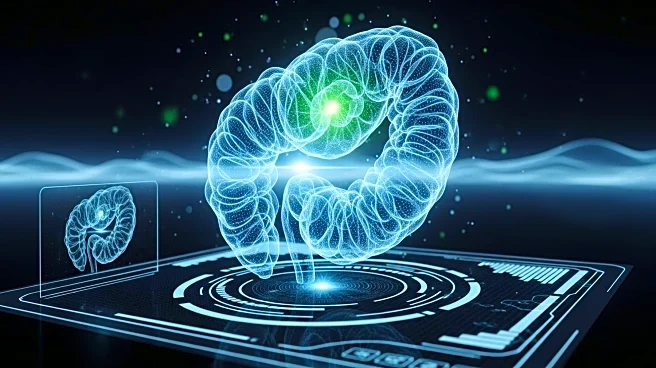What's Happening?
The University of Texas MD Anderson Cancer Center has launched the Institute for Data Science in Oncology (IDSO) to integrate advanced data science and artificial intelligence (AI) into cancer care and research. The initiative aims to develop 'digital twins'—virtual models of patients and their tumors—to simulate disease progression and treatment responses. This approach allows for personalized treatment plans without administering actual doses. The IDSO, co-directed by Caroline Chung and David Jaffray, focuses on embedding data science into the core of MD Anderson's operations, rather than as an add-on. The institute's efforts are structured around five focus areas, including quantitative analysis of medical imaging and computational modeling, to enhance diagnosis, prognosis, and treatment strategies.
Why It's Important?
The integration of data science into oncology represents a significant shift in how cancer is treated, potentially leading to more personalized and effective care. By using digital twins, clinicians can predict treatment outcomes more accurately, reducing the risk of side effects and improving patient quality of life. This approach could revolutionize cancer treatment by moving away from a one-size-fits-all model to a more tailored strategy. The initiative also addresses the frustration among researchers whose work often remains theoretical by providing a direct pathway to clinical application. This could lead to faster adoption of new technologies and methodologies in medical practice, ultimately benefiting patients and healthcare systems.
What's Next?
The IDSO plans to continue developing its digital twin models and expand its collaborative efforts with other academic and research institutions. The institute has launched a fellowship program to train clinicians and data scientists to work together effectively, fostering a culture of collaboration. Future projects include using machine learning to predict surgical complications and collaborating on drug discovery platforms. The ultimate goal is to achieve a global impact by transforming cancer care practices worldwide, although this will require a cultural shift in clinical workflows to fully leverage technological advancements.
Beyond the Headlines
The use of digital twins in cancer care raises ethical and legal questions about data privacy and the potential for AI to make critical healthcare decisions. As these technologies become more integrated into clinical practice, there will be a need for clear guidelines and regulations to ensure patient data is protected and that AI-driven decisions are transparent and accountable. Additionally, the shift towards data-driven care may require significant changes in medical education and training to prepare future healthcare professionals for a technology-rich environment.










